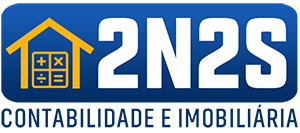Content
Addiction to substances happens when the reward system in your brain “takes over” and amplifies compulsive substance-seeking. Everyone’s bodies and brains are different, so their reactions to drugs can also be different. Some people may become addicted quickly, or it may happen over time.
“Opioids do the opposite, they actually decrease your respiration so less oxygen is delivered to the body.” The mixture of stimulants like cocaine and meth with highly potent synthetic opioids is a fast-growing driver of fatal overdoses in the U.S. Accidental overdoses happen when people take higher doses of prescription medication than originally intended to achieve certain results or use too much of an illegal drug to get a better high. Over 5 million emergency room visits in 2011 were related to drugs or alcohol. If you are one of them, know you are not alone — and that many treatment options exist to help you overcome your addiction. No one expects to develop an addiction when they begin experimenting.
Substance addiction
In this study, medication was the intervention most likely to be used. With more than 100,000 overdose deaths a year, new systems of addiction care are justified, and urgent. Oregon has the second highest substance use disorder rate in the country, and in the past year, the states suffered a sharp spike in overdose deaths. In 2020, voters in Oregon approved taking a different approach. Ballot Measure 110 removed criminal penalties for carrying small amounts of drugs such as cocaine, heroin and methamphetamine.
Addictive substances and behaviors can create a pleasurable “high” that’s physical and psychological. You’ll typically use more of certain substances or engage in behaviors longer to achieve the same high again. It’s common for a person to relapse, but relapse doesn’t mean that treatment doesn’t work. As with other chronic health conditions, treatment should be ongoing and should be adjusted based on how the patient responds.
Treatments
Drug misuseis when you use legal or illegal substances in ways you shouldn’t. You might take more than the regular dose of pills or use someone else’s prescription. https://ecosoberhouse.com/article/what-is-drug-addiction/ You may misuse drugs to feel good, ease stress, or avoid reality. But usually, you’re able to change your unhealthy habits or stop using altogether.
Since the COVID-19 pandemic, these groups that were often out of reach to many are now available online around the clock through video meetings. Such groups are not considered part of a formal treatment plan, but they are considered as useful in conjunction with professional treatment. This article discusses how drug addiction is treated and offers suggestions for overcoming drug addiction. Emergency department (ED) clinicians are in a unique position to interact with people struggling with opioid addiction…
Addiction and the humanities
Addiction is not limited to biochemical substances such as cocaine, alcohol, inhalants, or nicotine. It can involve behaviors that provide opportunities for immediate reward. Over time, drug addiction can cause serious health issues, such as heart disease, certain cancers, organ damage, neurological problems, and potentially fatal overdose. Treatments for drug addiction include psychotherapy, medical detox, prescribed medication, and support groups. It may be done by family and friends in consultation with a health care provider or mental health professional such as a licensed alcohol and drug counselor, or directed by an intervention professional.
If you’re currently taking a prescription drug and are concerned you may be developing a dependence, talk to your healthcare provider immediately. It’s important to turn to healthy coping mechanisms during these times of change, such as exercising, meditating or learning a new hobby. Consider seeing a mental health professional if you’re having issues managing your stress.
Medical Professionals
Opioids are narcotic, painkilling drugs produced from opium or made synthetically. This class of drugs includes, among others, heroin, morphine, codeine, methadone, fentanyl and oxycodone. Two groups of synthetic drugs — synthetic cannabinoids and substituted or synthetic cathinones — are illegal in most states. The effects of these drugs can be dangerous and unpredictable, as there is no quality control and some ingredients may not be known. More than 95% of the men currently admitted to the hospital are using substances, and many are kush users.
- But just because addiction runs in the family does not necessarily mean a person will develop one.
- Going through detox is a crucial step in recovery, and it’s these first few weeks that are arguably most critical because they are when the risk of relapse is highest.
However, a person with addiction may not be ready or willing to seek professional medical help, regardless of the negative impacts it is having on their health and wellness. Anyone using substances, even socially, should discuss them with a doctor to ensure safe use and monitor for signs or symptoms of addiction. Addiction is a chronic condition that can also result from taking medications. In fact, the misuse of opioids — particularly illicitly made fentanyl — caused nearly 50,000 deaths in the United States in 2019 alone.
Cannabis often precedes or is used along with other substances, such as alcohol or illegal drugs, and is often the first drug tried. As time passes, you may need larger doses of the drug to get high. As your drug use increases, you may find that it’s increasingly difficult to go without the drug. Attempts to stop drug use may cause intense cravings and make you feel physically ill. The National Institute of Drug Abuse has long noted that 90 days is the minimum dose of effective care for an average substance use disorder.
